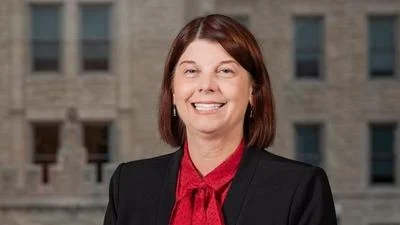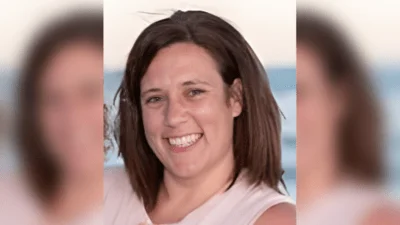DeKalb County Planning & Zoning Committee met April 27.
Here are the minutes provided by the committee:
The Planning and Zoning Committee of the DeKalb County Board met at 6:30 pm in the DeKalb County Legislative Center, Gathertorium, in Sycamore, Illinois. In attendance were Committee Members: Tim Bagby, Steve Faivre, John Frieders, Jerry Osland, Roy Plote, Craig Roman, and Larry West, and Community Development Department staff: Derek Hiland and Marcellus Anderson. Also in attendance were: Brian Gregory, DeKalb County Administrator; Liam Sullivan, Administrative Analyst for DeKalb County; Greg Millburg, Manager of the DeKalb County Farm Bureau; John Lyon; James Hutcheson; John Lageman; Brad Belanger, representing the Concerned Citizens for DeKalb County (CCFDC); Bruce Tim; Linda Slabon; Meryl Domina; Patricia Vary; Alfred Mueller; Steve Kapitan; and Mary Rita Nelson.
Call to Order / Roll Call
Mr. Faivre, Planning and Zoning Committee Chair, called the meeting to order. Mr. Roman arrived to the meeting at 6:41 pm.
Approval of Agenda
Mr. Plote moved to approve the agenda, seconded by Mr. Bagby, and the motion carried unanimously.
Approval of Minutes
Mr. West moved to approve the minutes of the March 23, 2022 Planning and Zoning meeting, seconded by Mr. Frieders, and the motion carried unanimously.
Public Comments
Linda Slabon expressed the need for more forms of sustainable energy systems. She stated that she did not support changing the existing solar setbacks or enacting rules that would hinder solar developments. She read excerpts from a report about the effects of climate change, voiced her support of solar systems, and requested that the County Board and the Planning and Zoning Committee to rely on science and the well being of all. She then distributed a copy of her statement to the Committee.
Mary Rita Nelson conveyed her opposition to the document previously submitted by the CCFDC regarding their concerns about solar. She then expressed her feelings about why developing wind and solar power systems were important. She also emailed in a copy of the League of Women Voters Position on Climate Legislation voicing its opposition to overly restrictive setbacks on solar developments.
Meryl Domina talked about the importance of solar development, and exhorted people not to be afraid of change.
Patricia Vary talked about climate change and the issues it is causing. She then talked about why the development of wind, hydro-electric, solar, and geothermal systems is important. She finished by asserting that the objectors to these systems only represent a minority of the County.
Bruce Tim read his statement regarding his and his wife’s opposition to solar farms, highlighting the need to conserve and utilize farmland for food generation. He then gave copies of the statement to the Committee.
Brad Belanger distributed a copy of a statement prepared by the CCFDC regarding changes they wished to see made to the Solar Energy Systems (SES) regulations, which he also indicated had been emailed to the Committee members and staff. He noted that the statement focused on changes to the definitions used in the ordinance. He then gave a summary of the contents of the statement.
John Lageman read a statement iterating concerns he had with the existing solar regulations. He then distributed a copy of his statement and indicated that it had also been emailed to the Committee and staff. He also alleged that the current regulations, and those solar farms and gardens approved under them, were in violation of the DeKalb County Unified Comprehensive plan, and that a moratorium should be called on further projects until the Plan had been updated.
Alfred Mueller spoke about his thoughts and concerns regarding climate change, and voiced his support for doing whatever was needed to fight climate change.
Steve Kapitan encouraged Committee to focus on the science of the issues, to research other communities facing these decisions, and to make a balanced judgement on the factors that need to be looked at.
Old Business -
none
New Business – Solar Energy Systems Regulations
Mr. Hiland gave a recap of what was covered at the previous meeting, noting that the first item to be addressed was definitions. He noted that the Committee packet has a listing of the current definitions, along with some recommended changes based on his review of regulations used elsewhere. He then discussed the recommendations and why he was presenting it to the Committee.
Mr. Frieders noted that some of the existing solar gardens do not have any pollinators, but lots of weeds. Mr. Hiland responded that the current ordinance is silent on pollinators and prairie grasses, noting that the ordinance only requires that the company work with the DeKalb County Soil and Water Conservation (SWCD) district to develop a plan and that some kind of vegetation be planted underneath the panels. He also noted that this issue would be addressed when the Committee covers performance standards for commercial solar facilities. Mr. Osland opined that a list of preferred planting choices should be established. Mr. Hiland responded that the ordinance was silent on the matter, but noted that Dean Johnson of the SWCD would be coming before the Committee at a future meeting to discuss this issue, along with some other recommendations they had.
Mr. Bagby recommended that further language should be added regarding building-integrated accessory solar systems limiting them to the footprint of the existing building. Mr. Hiland responded that he has seen something along those lines in other county ordinances, but that he could look further into the matter, and bring something back to the next meeting.
Mr. Bagby recommended that language for agrivoltaic should be revised to indicate that such systems are specifically private uses associated with the agricultural use of a farm. Mr. Hiland responded that he would research the issue some more to see what other counties have put in place. Mr. Plote commented that given how the system works, such a designation was immaterial. This then led into the Committee discussing how credit system worked and whether private users could sell their excess power to the power company.
Mr. Hiland talked about how the terms solar farm and solar garden were developed based on the state language. He noted that an issue brought up at several meetings was the use of these terms and what they meant. Mr. Hiland also talked about how changes in the state programs and in solar technology have impacted what these terms mean and how they are used. The Committee had a discussion with Mr. Hiland about the possible changes to the definitions.
Mr. Osland commented that large solar farms should be required to have multiple entrances, instead of just one access point. Mr. Hiland responded that the three industrial-scale projects did have multiple entrances.
Mr. Hiland noted he would conduct more research based on the comments from the Committee and the public; and asked that the Committee members to please contact him if they have further comments. He then noted that the next meeting would look at dimensional issues, then site plan review.
Mr. Hiland noted that he realized that the definition for battery storage was missing from his presentation and that he would address it at their next meeting. Mr. Hiland then talked about a model law adopted by the state of New York regarding storage batteries, which he included in their packet for their review. Mr. Frieders inquired about the number of containers that would be needed if the Owens Creek project were to add battery storage. Mr. Hiland responded that he did not know the answer, since it would depend on the batteries uses. Mr. West commented that local firefighters would need to have the right training to be prepared to fight a battery fire and talked about his reservations regarding the fire safety of lithium batteries. He added that anyone coming forward with a battery system should be required to have a safety plan in place to address any possible battery fire. Mr. Gregory called attention to the NAFTA codes for fire suppression.
Mr. Hland noted that the final slides in his presentation were pictures an existing solar facility taken from half a mile, a quarter mile, three hundred feet, and one hundred feet away. He noted that the pictures by a private citizen were taken in response to complaints made about the mockups created by the companies showing how future systems would appear.
Mr. Faivre asked that staff also review the suggested definitions provided by the Concerns Citizens for DeKalb County in their statements.
Mr. Hiland was also asked to place copies of his presentation on the County website, and he said he would.
Other Business
None
Adjournment
Mr. Roman moved to adjourn the meeting, seconded by Mr. Osland, and the motion carried unanimously.
https://dekalbcounty.org/wp-content/uploads/2022/05/minutes-pz-04272022.pdf



 Alerts Sign-up
Alerts Sign-up